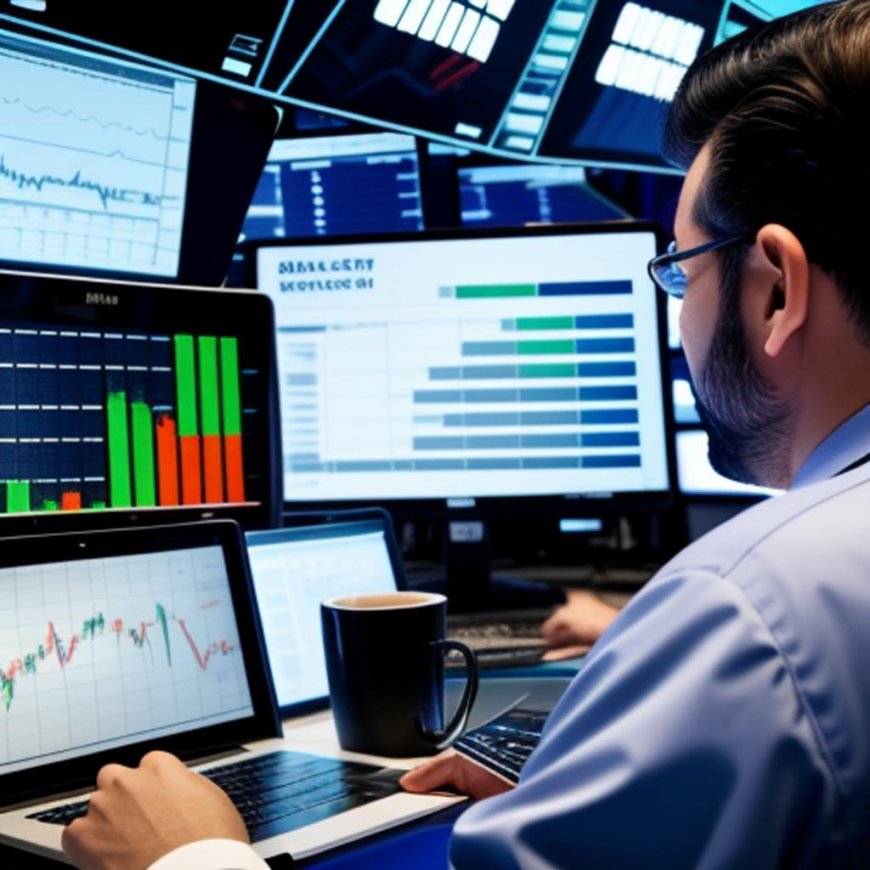Demat Account: Everything You Need to Know About Demat Accounts in the Share Market

Are you ready to embark on your investment journey in the share market? One crucial tool you’ll need is a Demat account. Whether you’re a seasoned investor or a newcomer eager to explore the stock market, understanding the basics of a Demat account is essential. This guide will cover everything you need to know, including what a Demat account is, the different types, associated fees, and required documents. Let’s demystify Demat accounts and set you on the path to successful investing.
What is a Demat Account?
A Demat account, short for "dematerialized account," is a digital account used to hold and trade securities like stocks, bonds, and mutual funds in electronic format. Unlike physical share certificates, which are prone to damage or loss, a Demat account stores these investments electronically. This method enhances transaction security and streamlines the buying and selling process.
For anyone looking to trade in the stock market, having a Demat account is essential. It simplifies your investment management by consolidating all your financial assets into a single, accessible platform. So, if you’re considering investing in the stock market, remember that a Demat account is key to engaging in modern trading practices efficiently.
Types of Demat Accounts
There are primarily two types of Demat accounts available:
Regular Demat Account:
Designed for Indian residents, this account allows you to trade within India's stock market. It offers a user-friendly platform for buying and selling various securities, including stocks, mutual funds, and bonds. It facilitates access to major exchanges like the Bombay Stock Exchange (BSE) and the National Stock Exchange (NSE).
Repatriable (NRI) Demat Account:
Tailored for Non-Resident Indians (NRIs), this account allows them to invest in Indian markets and repatriate their earnings abroad. NRIs can invest in a range of financial instruments, such as stocks, mutual funds, bonds, and ETFs, while adhering to the regulatory guidelines set by the Reserve Bank of India (RBI). This account enables NRIs to manage their investments in India from overseas.
Fees Associated with Demat Accounts
Understanding the fees linked with Demat accounts is crucial. Different service providers have varying fee structures, so it’s important to research thoroughly before opening an account. Common fees include:
Account Opening Charges:
This is a one-time fee charged by Depository Participants (DPs) to set up your Demat account. Some providers offer discounts or waivers for the first year.
Annual Maintenance Charges (AMC):
This yearly fee covers the cost of maintaining your Demat account, including administrative and operational expenses.
Transaction Charges:
Fees are applied to transactions involving securities, such as buying or selling stocks, bonds, or mutual funds. Charges vary based on the transaction volume and type of security.
Custodian Fees:
Some DPs charge fees for the safekeeping of securities within the Demat account, ensuring their security and proper management.
Documents Required for Opening a Demat Account
To open Demat account, you will need to provide several documents:
-
Identity Proof: Valid documents include Aadhaar Card, Passport, PAN Card, Voter ID, or Driving License to verify your identity.
-
Address Proof: Documents such as Aadhaar Card (with address), Passport (address page), Voter ID, Driving License, or recent utility bills (within 3 months) are needed to confirm your residence.
-
Income Proof:Provide documents like salary slips, Income Tax Returns (ITR), bank statements showing regular income, or Form 16 (for salaried individuals) to demonstrate your financial stability.
Conclusion
In summary, a Demat account is indispensable for anyone interested in stock market investments. It offers a secure, convenient, and efficient way to manage and trade securities electronically. When applying for a Demat account, ensure you have all necessary documents ready to streamline the process. From identity and address proofs to passport-size photographs, having these documents in order can expedite the account setup.
By familiarizing yourself with Demat accounts and staying informed about market trends, you can navigate your investment journey with confidence and ease.
FAQs
What is the minimum balance required in a Demat account?
There is no minimum balance requirement for opening or maintaining a Demat account. You can maintain a zero balance if desired.
Can I have multiple Demat accounts?
Yes, you can open multiple Demat accounts with different depository participants if needed.
Are there any annual maintenance charges for a Demat account?
Yes, annual maintenance charges apply and vary depending on the service provider and account type.
Is it necessary to link my bank account with the Demat account?
It is advisable to link your bank account with your Demat account for smooth transactions and withdrawals.
How long does it take to open a Demat account?
Typically, opening a Demat account takes 7-10 working days once all required documents are submitted.
Can I trade in commodities using my Demat account?
No, commodities trading requires a separate trading account specifically for commodity exchanges.
What's Your Reaction?







![Chemical Filter Market Research Overview and Assessment [2025-2033]](https://news.bangboxonline.com/uploads/images/202501/image_430x256_6790f1d316676.jpg)













